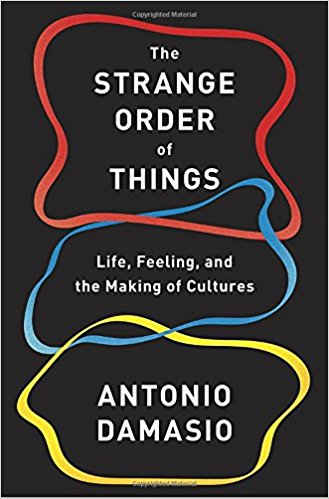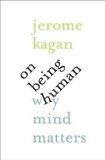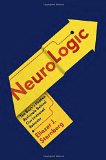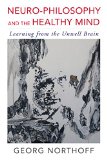February 7, 2018
(NOTE: As an Amazon Associate I earn from qualifying purchases.)

Book description from the publisher:
From one of our preeminent neuroscientists: a landmark reflection that spans the biological and social sciences, offering a new way of understanding the origins of life, feeling, and culture.
The Strange Order of Things is a pathbreaking investigation into homeostasis, the condition of that regulates human physiology within the range that makes possible not only the survival but also the flourishing of life. Antonio Damasio makes clear that we descend biologically, psychologically, and even socially from a long lineage that begins with single living cells; that our minds and cultures are linked by an invisible thread to the ways and means of ancient unicellular life and other primitive life-forms; and that inherent in our very chemistry is a powerful force, a striving toward life maintenance that governs life in all its guises, including the development of genes that help regulate and transmit life. In The Strange Order of Things, Damasio gives us a new way of comprehending the world and our place in it.
Comments (0)
- cognitive science
March 10, 2016
(NOTE: As an Amazon Associate I earn from qualifying purchases.)

On Being Human: Why Mind Matters by Jerome Kagan (Yale University Press, 2016)
(kindle ed.), (amazon.co.uk), (UK kindle ed.)
Book description from the publisher:
In this thought-provoking book, psychologist Jerome Kagan urges readers to sally forth from their usual comfort zones. He ponders a series of important nodes of debate while challenging us to examine what we know and why we know it. Most critically he presents an elegant argument for functions of mind that cannot be replaced with sentences about brains while acknowledging that mind emerges from brain activity.
Kagan relies on the evidence to argue that thoughts and emotions are distinct from their biological and genetic bases. In separate chapters he deals with the meaning of words, kinds of knowing, the powerful influence of social class, the functions of education, emotion, morality, and other issues. And without fail he sheds light on these ideas while remaining honest to their complexity.
Thoughtful and eloquent, Kagan’s On Being Human places him firmly in the tradition of Renaissance essayist Michel de Montaigne, whose appealing blend of intellectual insight, personal storytelling, and careful judgment has attracted readers for centuries.
Google Books preview:
Comments (0)
- cognitive science,new books,psychology
January 12, 2016
(NOTE: As an Amazon Associate I earn from qualifying purchases.)

NeuroLogic: The Brain’s Hidden Rationale Behind Our Irrational Behavior by Eliezer J. Sternberg (Pantheon, 2016)
(kindle ed.), (amazon.co.uk)
Book description from the publisher:
A groundbreaking investigation of the brain’s hidden logic behind our strangest behaviors, and of how conscious and unconscious systems interact in order to create our experience and preserve our sense of self.
From bizarre dreams and hallucinations to schizophrenia and multiple personalities, the human brain is responsible for a diverse spectrum of strange thoughts and behaviors. When observed from the outside, these phenomena are often written off as being just “crazy,” but what if they were actually planned and logical?
NeuroLogic explores the brain’s internal system of reasoning, from its unconscious depths to conscious decision making, and illuminates how it explains our most outlandish as well as our most stereotyped behaviors. From sleepwalking murderers, contagious yawning, and the brains of sports fans to false memories, subliminal messages, and the secret of ticklishness, Dr. Eliezer Sternberg shows that there are patterns to the way the brain interprets the world—–patterns that fit the brain’s unique logic. Unraveling these patterns and the various ways they can be disturbed will not only alter our view of mental illness and supernatural experience, but will also shed light on the hidden parts of ourselves.
Google Books preview:
Comments (0)
- cognitive science,new books,psychology
December 19, 2015
(NOTE: As an Amazon Associate I earn from qualifying purchases.)

Neuro-Philosophy and the Healthy Mind: Learning from the Unwell Brain by Georg Northoff (W.W. Norton & Co., 2016)
(kindle ed.),(amazon.co.uk), (UK kindle ed.)
Book description from the publisher:
Applying insights from neuroscience to philosophical questions about the self, consciousness, and the healthy mind.
Can we “see” or “find” consciousness in the brain? How can we create working definitions of consciousness and subjectivity, informed by what contemporary research and technology have taught us about how the brain works? How do neuronal processes in the brain relate to our experience of a personal identity? Where does the brain end and the mind begin?
To explore these and other questions, esteemed philosopher and neuroscientist Georg Northoff turns to examples of unhealthy minds. By investigating consciousness through its absence?in people in vegetative states, for example?we can develop a model for understanding its presence in an active, healthy person. By examining instances of distorted self-recognition in people with psychiatric disorders, like schizophrenia, we can begin to understand how the experience of “self” is established in a stable brain.
Taking an integrative approach to understanding the self, consciousness, and what it means to be mentally healthy, this book brings insights from neuroscience to bear on philosophical questions. Readers will find a science-grounded examination of the human condition with far-reaching implications for psychology, medicine, our daily lives, and beyond.
Google Books preview:
See also: Author’s website
Comments (0)
- cognitive science,consciousness,philosophy of mind
December 12, 2015
(NOTE: As an Amazon Associate I earn from qualifying purchases.)

We Have the Technology: How Biohackers, Foodies, Physicians, and Scientists Are Transforming Human Perception, One Sense at a Time by Kara Platoni (Basic Books, 2015)
(kindle ed.), (amazon.co.uk)
Book description from the publisher:
How do we know what’s real? That’s not a trick question: sensory science is increasingly finding that we don’t perceive reality: we create it through perception. In We Have the Technology, science writer Kara Platoni guides us through the latest developments in the science of sensory perception.
We Have the Technology introduces us to researchers who are changing the way we experience the world, whether creating scents that stimulate the memories of Alzheimer’s patients, constructing virtual limbs that approximate a sense of touch, or building augmented reality labs that prepare soldiers for the battlefield. These diverse investigations not only explain previously elusive aspects of human experience, but offer tantalizing glimpses into a future when we can expand, control, and enhance our senses as never before.
A fascinating tour of human capability and scientific ingenuity, We Have the Technology offers essential insights into the nature and possibilities of human experience.
Google Books preview:
See also: Author’s website
Comments (0)
- cognitive science,new books







